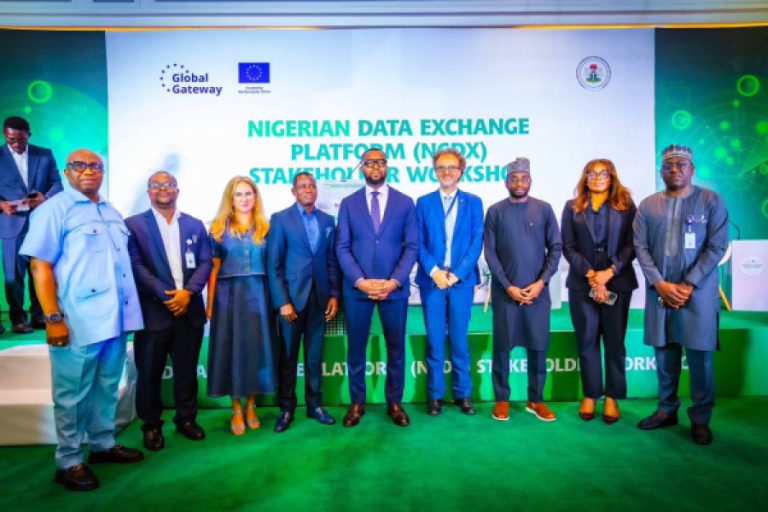Nigeria has launched a new technical roundtable on the Nigeria Data Exchange Platform (NGDX). The project is seen as a bold step to strengthen the country’s Digital Public Infrastructure (DPI).
The roundtable was organized by the Federal Ministry of Communications, Innovation and Digital Economy with support from the European Union (EU) and its partners from Estonia, Finland, Germany, and France. It was part of the Nigeria Data Exchange Conference, which aims to build secure, inclusive, and trusted digital systems for citizens and businesses.
The conference, hosted through the Digital for Development (D4D) Hub, brought together senior government officials, lawmakers, regulators, industry experts, and international partners. They discussed the vision, governance, and technical design of the NGDX, which is expected to become the third key pillar of Nigeria’s digital infrastructure, alongside the National Identity System and the National Payments Infrastructure.
Speaking at the event, the Minister of Communications, Innovation and Digital Economy, Dr. Bosun Tijani, said the NGDX is crucial for Nigeria’s digital transformation. He explained that Nigeria already has two important foundations in place — the identity system and the payment system. The next step, he said, is to create a trusted data exchange that allows government and businesses to share and use data securely while ensuring citizens enjoy better services with strong protection for privacy, security, and accountability.
The minister assured that the NGDX will fully comply with the Nigeria Data Protection Act 2023, which guarantees the right to privacy and established the National Data Protection Commission. He also promised that a functional data exchange platform will be delivered by the end of 2025, in line with President Bola Ahmed Tinubu’s Renewed Hope Agenda.
In his opening remarks, the Head of Cooperation at the EU Delegation to Nigeria and ECOWAS, Massimo De Luca, announced that the EU has committed €18 million to support Nigeria’s digital infrastructure. He said the initiative will help build secure and inclusive digital systems, boost economic growth, and strengthen cooperation between Europe and Africa.
De Luca stressed that Digital Public Infrastructure is not just about technology but also about empowering societies through secure identities, easy payments, and trusted data governance. He added that such systems must be backed by strong legal safeguards on data and privacy while ensuring equity, inclusivity, human focus, security, trust, and sustainability.
He also highlighted other EU-backed projects that are helping Nigeria’s digital growth. These include BRIDGE, which will roll out 90,000 km of fibre-optic cables across the country; 3MTT, which trains young Nigerians for jobs in the ICT sector; and ongoing support for the broader digital economy and local businesses.
De Luca noted that the Nigeria Data Exchange Conference marks the first step in a wider EU partnership with Nigeria on digital infrastructure. He praised the collaboration with the ministry and confirmed that the newly approved €18 million project will help roll out the NGDX and expand the country’s digital future.


